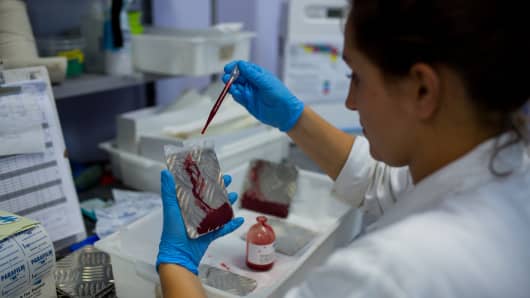Google is collaborating with one of the world’s leading aid organizations for children, UNICEF, to lead the fight against the world’s latest health threat, the Zika virus.
The tech giant has provided a $1 million grant to the United Nations’ program, to help raise global awareness, while supporting vaccine development and prevention efforts against Zika’s transmission, Google announced Thursday.
Google is also sending top engineers, data scientists and designers to work with UNICEF, so they can analyze data and visualize where potential virus outbreaks may come from.
If successful, Google hopes it will help UNICEF, non-governmental organizations (NGOs) and governments to come up with the most effective strategies and find the most appropriate resources to tackle Zika. The technique could then be used in future emergencies, the firm added.
“Fighting Zika requires raising awareness on how people can protect themselves, as well as supporting organizations who can help drive the development of rapid diagnostics and vaccines,” Jacquelline Fuller, Google.org director, said in an official blog post.
“We also have to find better ways to visualize the threat so that public health officials and NGO’s can support communities at risk.”
The Zika virus disease is trigged by a virus transmitted by Aedes mosquitoes, with possible symptoms including skin rash, mild fever, muscle and/or joint pain.
In recent months, reports suggest that the disease has spread through women – reported predominantly in Brazil – who have given birth to babies with microcephaly, a birth defect that involves incomplete brain development and an abnormally small head.
A recent study published in medical journal The Lancet, suggested that Zika “might cause” Guillain-Barré syndrome (GBS), a serious nervous system disorder. In the study, 42 patients who were diagnosed with GBS during a Zika virus outbreak in French Polynesia, carried Zika-like symptoms.
Consistent and definitive scientific proof however has yet to be proven on both accounts. No vaccination or treatment has been found yet.
On February 1, 2016, the World Health Organization declared a “Public Health Emergency of International Concern” over the Zika virus. The disease has been reported in several countries, many of which are from the Caribbean and South America.
Since November, the tech giant has seen over a 3,000 percent increase in search interest of the virus worldwide, and is launching a web-based initiative to increase awareness.
The search engine is adding detailed information online about the virus worldwide, which will be available in 16 different languages. Alongside general information, Google users will have access to public health alerts.
“We hope these efforts are helpful in fighting this new public health emergency,” said Fuller, adding that they hope to “continue to do (their) part to help combat this outbreak.”
[“source -cncb”]


